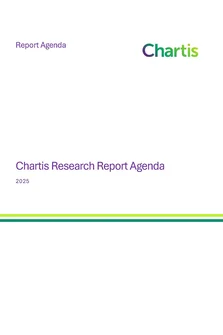<p>Despite improvements in a number of areas across all sectors of the financial services industry – governance, modeling, consistency, efficiency, data management, macroeconomic scenarios and optimization – stress testing is still very much a work in progress. Enterprise Stress Testing (EST) solutions are fragmented, and EST platforms have to embrace multiple technologies covering performance, data storage and delivery.</p>
<p>By far the biggest driver of progress and investment in EST systems is still regulation, across all segments of the financial services sector, although the specific techniques and methodologies used to comply vary by sector. For a typical large bank, stress-testing technology can cost as much as $250m per year. However, banks are spending a lot of effort and money on short-term, departmental goals, and are failing to invest in sustainable, joined-up processes.</p>
<p>Several other external factors are shaping the growing need for EST, such as the next wave of regulation, and new ‘risk-based’ accounting regimes, which demand specific and varied changes to Financial Institutions’ (FIs’) processes and operations. Such variation is a strong argument for a common EST platform that can be customized with flexible, modular options. Data management is critical to the success of EST programs, but the development and spread of best practices in this area is sluggish – as highlighted by the slow progress in introducing the Basel Committee on Banking Supervision (BCBS) 239 principles for data management.</p>
<p>Regulations aside, however, overall stress testing is critical to the success – and profitability – of all aspects of financial services operations, and senior managers recognize that some discipline around EST will be vital to their companies’ survival in the next few years. All of which makes the fragmentation of stress-testing tools in many organizations – and the use of spreadsheets in the last mile of regulatory reporting – especially strange.</p>
<p>While different categories of vendors continue to take a ‘mix and match’ approach to their offerings, FIs can learn from the experience of others in implementing successful EST programs. As well as governance, ownership and operational groups, FIs should ensure they have appropriate performance indicators in place, and create a robust, enterprise-wide risk environment to support their business.</p>
<p>This report uses Chartis’s RiskTech Quadrant<sup>®</sup> to explain the structure of the market. The RiskTech Quadrant™ uses a comprehensive methodology of in-depth independent research and a clear scoring system to explain which technology solutions meet an organization’s needs. The RiskTech Quadrant™ does not simply describe one technology solution as the best EST solution; it has a sophisticated ranking methodology to explain which solutions would be best for buyers, depending on their implementation strategies.</p>
<p>This report covers the leading vendors’ EST systems, including: Axioma, AxiomSL, BearingPoint, Bloomberg, Broadridge, Calypso, ClusterSeven, FICO, FINCAD, FIS, Fiserv, IBM, IHS Markit, Intellect Design Arena, Misys, Moody’s Analytics, MSCI, Murex, Numerix, Oracle, Prometeia, Quantifi, SAP, SAS, StatPro and Wolters Kluwer Financial Services (WKFS).</p>
Only users who have a paid subscription or are part of a corporate subscription are able to print or copy content.
To access these options, along with all other subscription benefits, please contact info@risk.net or view our subscription options here: http://subscriptions.risk.net/subscribe
You are currently unable to print this content. Please contact info@chartis-research.com to find out more.
You are currently unable to copy this content. Please contact info@chartis-research.com to find out more.
Copyright Infopro Digital Limited. All rights reserved.
As outlined in our terms and conditions, https://www.infopro-digital.com/terms-and-conditions/subscriptions/ (point 2.4), printing is limited to a single copy.
If you would like to purchase additional rights please email info@chartis-research.com
Copyright Infopro Digital Limited. All rights reserved.
You may share this content using our article tools. As outlined in our terms and conditions, https://www.infopro-digital.com/terms-and-conditions/subscriptions/ (clause 2.4), an Authorised User may only make one copy of the materials for their own personal use. You must also comply with the restrictions in clause 2.5.
If you would like to purchase additional rights please email info@chartis-research.com


